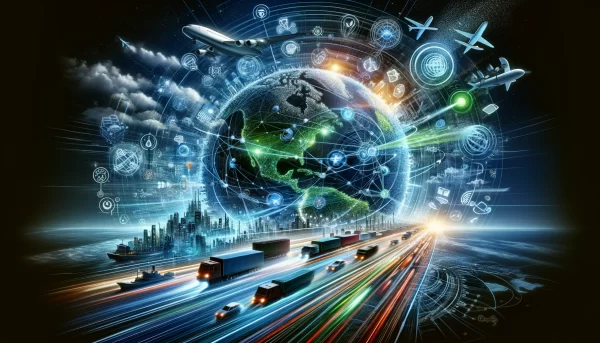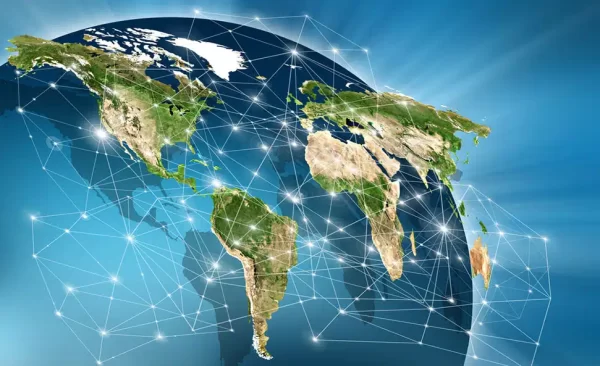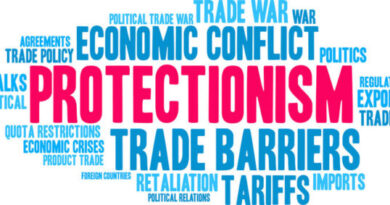Navigating the New Frontier: Understanding Globalization 4.0
Globalization has long been a transformative force, reshaping how nations, economies, and cultures connect. From the Industrial Revolution to the digital age, each wave of globalization has introduced new dynamics into the global economic landscape. Today, we are entering an unprecedented phase known as Globalization 4.0, characterized by rapid technological advancements, shifting economic power, and an increased focus on sustainability and inclusivity.
The Transition to Globalization 4.0:
Previous eras of globalization focused on enhancing trade and investment flows. Globalization 1.0 through 3.0 were driven by the spread of industrialization, trade liberalization, and the rise of global supply chains. These phases often prioritized efficiency and profit, sometimes at the expense of equity and environmental health.
In contrast, Globalization 4.0 centers on a new set of priorities: digital connectivity, advanced technology, and sustainable development. It’s not just about moving goods and capital; it’s about integrating technology into every aspect of global trade and interaction. The rise of digital platforms, blockchain, and AI has created a more interconnected and accessible global market, enabling even small players to participate in international trade.
Technological Drivers of the New Era:
At the heart of Globalization 4.0 is a surge in technology. The advent of digital platforms has made it easier than ever for businesses to reach global audiences. Companies like Amazon and Alibaba exemplify this shift, providing platforms where even small enterprises can thrive on a global scale.
Blockchain technology is redefining trust and transparency in global transactions. By providing a decentralized and immutable ledger, blockchain enhances security and reduces fraud in financial and supply chain operations. Similarly, Artificial Intelligence (AI) is revolutionizing industries by automating tasks, optimizing operations, and enabling predictive analytics, thus fostering a more efficient and connected global economy.
Automation and robotics are also changing the game, from manufacturing to service sectors. These technologies are enhancing productivity and creating new opportunities, though they also bring challenges such as job displacement that must be addressed.
Shifting Economic Power:
Globalization 4.0 is also marked by a significant shift in economic power. Emerging markets, including China, India, and various Southeast Asian countries, are increasingly influencing global economic trends. This shift is reshaping trade routes and economic alliances, as seen in initiatives like China’s Belt and Road Initiative (BRI).
These countries are not only expanding their influence but also driving technological and industrial growth. Mobile technology, e-commerce, and fintech innovations in these regions are creating new market opportunities and integrating their economies more deeply into the global system.

The Rise of Sustainable Globalization:
Sustainability is a key theme in Globalization 4.0. The environmental costs of earlier globalization phases have led to a renewed focus on green technologies and sustainable practices. This includes the development of renewable energy sources, circular economy models, and initiatives aimed at reducing carbon footprints.
Global businesses are increasingly adopting eco-friendly practices and investing in technologies that promote sustainability. Electric vehicles, solar energy, and recycling technologies are becoming integral to global trade and investment strategies, driving both environmental and economic benefits.
Challenges and Opportunities Ahead:
Despite its benefits, Globalization 4.0 comes with challenges. The digital divide remains a significant issue, with disparities in technology access between developed and developing regions potentially widening economic inequalities. Addressing this divide is crucial for ensuring that the benefits of globalization are more evenly distributed.
Job displacement due to automation and AI is another concern. As technology transforms industries, it’s vital to focus on reskilling and upskilling the workforce to adapt to new roles and opportunities.
Additionally, rising protectionism and nationalistic policies pose risks to the open nature of globalization. Trade barriers and restrictive measures could hinder global cooperation and slow down progress. Navigating these challenges requires a balanced approach that promotes both global integration and local interests.
Looking Forward:
As we advance into Globalization 4.0, the focus will be on harnessing technology to create a more inclusive and sustainable global economy. By embracing digital innovations, fostering economic cooperation, and prioritizing environmental stewardship, we can navigate this new era effectively.
Globalization 4.0 presents a unique opportunity to rethink and reshape our interconnected world. The key to success will be to balance technological advancement with ethical considerations and ensure that progress benefits all corners of the globe.
FAQs:
- What defines Globalization 4.0?
Globalization 4.0 represents the latest evolution in global integration, driven by digital technology, advanced analytics, and a strong emphasis on sustainability. Unlike earlier stages, this phase intertwines technology with economic and social dynamics, fostering a more interconnected and responsible global economy. - How does Globalization 4.0 differ from previous phases?
Unlike its predecessors, which focused primarily on trade and industrial expansion, Globalization 4.0 integrates digital transformation, data analytics, and sustainability into global economic practices. This phase is characterized by the blending of technology with global trade, aiming to create a more inclusive and environmentally conscious global economy. - What technological advancements are central to Globalization 4.0?
Key technologies driving Globalization 4.0 include digital platforms for seamless global commerce, blockchain for secure and transparent transactions, artificial intelligence (AI) for enhancing operational efficiency, and automation for optimizing production and services. These technologies are reshaping how businesses interact and operate on a global scale. - Can you provide examples of Globalization 4.0 in practice?
Examples of Globalization 4.0 include e-commerce giants like Amazon and Alibaba, which facilitate global trade through digital platforms, blockchain applications that enhance transaction security, and AI-driven insights that improve business operations. The integration of renewable energy and sustainable practices in global supply chains also highlights this new era of globalization. - What impact is Globalization 4.0 having on emerging markets?
Emerging markets are gaining prominence in Globalization 4.0, with countries like China and India playing significant roles in shaping global trade and economic policies. These regions are advancing rapidly in mobile technology, e-commerce, and fintech, thereby influencing global economic trends and expanding their influence on the world stage. - How does Globalization 4.0 address environmental concerns?
Globalization 4.0 integrates sustainability into its framework by promoting green technologies, renewable energy, and circular economy models. Companies are increasingly adopting eco-friendly practices to reduce their environmental impact, aligning economic growth with environmental stewardship. - What are the main challenges of Globalization 4.0?
Major challenges include the digital divide, which can exacerbate inequalities between developed and developing regions, and job displacement caused by automation and AI. Additionally, protectionist policies and nationalistic tendencies pose risks to the open nature of global trade and cooperation. - How can businesses adapt to the changes of Globalization 4.0?
Businesses can adapt by embracing digital innovation, investing in sustainable practices, and leveraging advanced technologies to enhance efficiency and global connectivity. Staying agile, focusing on ethical practices, and addressing global market trends will be essential for success in this new era. - What does the future hold for Globalization 4.0?
The future of Globalization 4.0 is likely to feature continued technological advancements and a growing emphasis on sustainability. As digital connectivity and environmental concerns become more prominent, the global economy will evolve towards more inclusive and responsible practices. - How is Globalization 4.0 transforming global trade?
Globalization 4.0 is reshaping global trade by enhancing digital platforms for cross-border transactions, increasing transparency with blockchain technology, and optimizing supply chains through AI and automation. These changes streamline trade processes and expand market access for businesses worldwide. - What role does AI play in Globalization 4.0?
AI is pivotal in Globalization 4.0, automating tasks, providing predictive analytics, and optimizing business operations. It enables more personalized customer interactions, enhances decision-making, and drives innovation, contributing to a more interconnected and efficient global economy. - How are environmental issues addressed in this new phase of globalization?
Environmental issues are tackled by integrating sustainable practices and green technologies into global trade and investment. This includes adopting renewable energy, implementing circular economy principles, and reducing waste, all of which align with the goal of reducing the global environmental footprint. - What are the implications of Globalization 4.0 for international collaboration?
Globalization 4.0 underscores the need for international collaboration to address global challenges and leverage technological advancements. Effective cooperation is crucial for managing digital transformation, promoting sustainability, and ensuring that the benefits of globalization are shared equitably. - How does Globalization 4.0 impact job markets?
Globalization 4.0 influences job markets by driving automation and AI, which may displace some jobs but also create new opportunities in technology and green industries. Preparing the workforce through reskilling and upskilling is essential to adapt to these changes and seize emerging job prospects. - What role do digital platforms play in Globalization 4.0?
Digital platforms are central to Globalization 4.0, facilitating global commerce and connecting businesses with international customers. They support the growth of e-commerce, digital services, and remote work, enabling a more integrated and accessible global marketplace.




